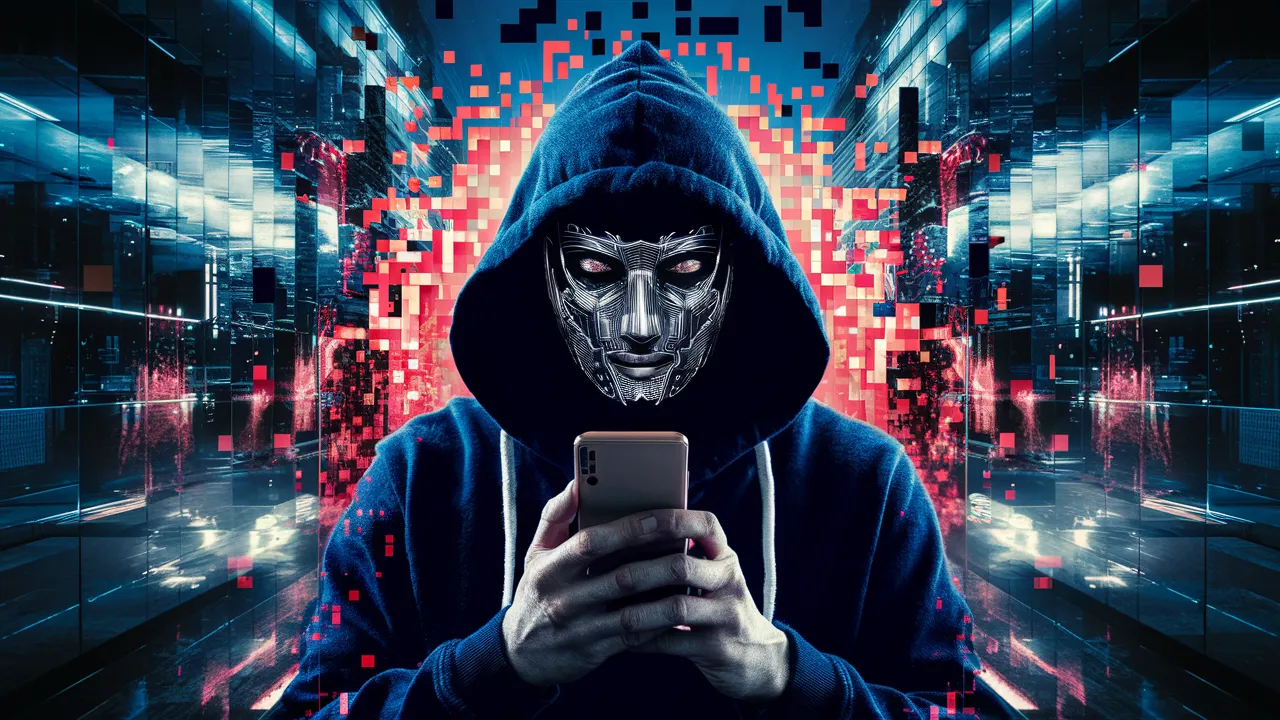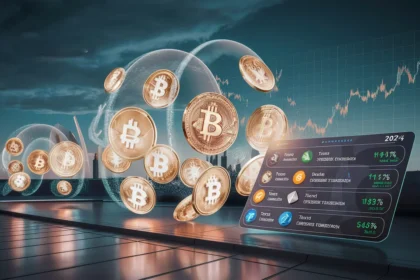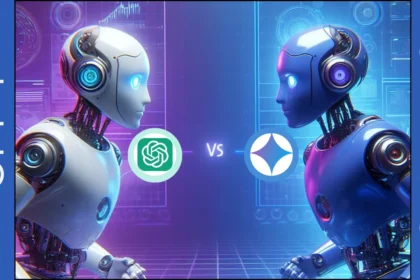In the big digital world, there are many different identities, just like there are many stars in the sky. One of these identities that people are curious about is “iamnobody89757.” This article wants to explore who this person is, why people like being anonymous online, and how these kinds of identities affect our online culture.
The internet has a big impact on how we act, what we do for work, and how we connect with others. At the core of all this is our online identity, which is like a digital version of ourselves that we show to others online. This article will talk about how this idea of online identity has changed over time, why some people need to stay anonymous online, and how it can be hard to tell what’s real and what’s not online.
In the endless world of the internet, identities can come and go, leaving behind their digital footprints and mysterious pasts. “iamnobody89757” is one of these mysterious identities that has caught the attention of people all around the world.
The Allure of Anonymity
The allure of anonymity on the internet is a fascinating aspect to explore. It revolves around the concept of individuals like iamnobody89757 choosing to remain unidentified and hidden behind digital veils. There are several compelling reasons why users opt for anonymity in the online realm, each with its own set of implications.
Privacy stands out as a primary concern for many anonymous users. In a world where personal data is constantly collected and utilized, maintaining anonymity can provide a shield against unwanted intrusion into one’s life. By concealing their true identities, users like iamnobody89757 can navigate online spaces without divulging sensitive information or risking exposure to potential threats.
Another aspect of the allure of anonymity is the ability to experiment with different personas. For some, adopting an anonymous identity provides an opportunity to step outside of their usual roles and explore new aspects of themselves. This can be liberating and empowering, allowing individuals to express facets of their personality that they may not feel comfortable showcasing under their real names.
It’s important to note that anonymity also has its drawbacks. The lack of accountability that comes with being anonymous can sometimes lead to harmful behavior, such as trolling, cyberbullying, or spreading misinformation. Balancing the benefits of anonymity with the need for responsible online conduct remains an ongoing challenge in digital communities.
Who is iamnobody89757?
“Iamnobody89757” is a pseudonymous identity, chosen by an individual to remain anonymous on the internet. Respectfully honoring this choice, we can still analyze and speculate about what we might deduce about this persona based on their online activities and interactions.
From the interactions and content shared under the alias “iamnobody89757,” we may gather insights into their interests, beliefs, and perhaps even aspects of their personality. For instance, the topics they engage with frequently, the language they use, and the communities they participate in can provide clues about their preferences, values, and perspectives.
However, it’s crucial to approach such speculation with caution due to the challenges and ethical considerations involved in attempting to uncover someone’s true identity online. Firstly, the internet offers a vast array of tools and platforms that enable users to mask their identities effectively, making it challenging to ascertain concrete information about them.
Moreover, delving into someone’s online activities to uncover their identity raises ethical questions regarding privacy and consent. While some information may be publicly available, actively pursuing private details or attempting to connect disparate pieces of information to reveal a person’s identity can be intrusive and potentially harmful.
Also, beliefs based solely on online interactions may lead to inaccuracies or misunderstandings. People often present different facets of themselves online, and what we see may not always reflect the entirety of their identity or motivations accurately.
The Impact of Anonymous Identities
The impact of anonymous identities such as “iamnobody89757” extends beyond individual interactions, shaping the landscape of internet culture in both positive and negative ways. Delving into these implications reveals a complex interplay of creativity, freedom, and accountability.
On the positive side, anonymous identities can foster creativity and innovation. By providing a platform for individuals to express themselves without fear of judgment or repercussions, anonymity encourages experimentation and the exploration of unconventional ideas. This can lead to the emergence of new perspectives, art forms, and communities that thrive on the anonymity-driven freedom of expression.
Moreover, anonymity can empower marginalized voices and facilitate discussions on sensitive or controversial topics. For individuals who may face social, political, or cultural barriers to expressing their views openly, adopting an anonymous identity can offer a sense of safety and enable them to participate in meaningful dialogues that might otherwise be stifled.
However, the impact of anonymous identities is not without its drawbacks. One of the primary concerns is the issue of accountability. Without the accountability that comes with revealing one’s true identity, some individuals may engage in harmful behaviors, such as online harassment, bullying, or the spread of misinformation. This lack of accountability can erode trust within online communities and contribute to a toxic digital environment.
Balancing the positive aspects of anonymity, such as fostering creativity and enabling free expression, with the need for accountability and responsible conduct is a continual challenge in internet culture. It requires ongoing efforts to promote ethical behavior, establish community guidelines, and leverage technological solutions to mitigate the negative impacts of anonymous identities while preserving the benefits they offer to individuals and online communities.
Certainly, there are numerous examples of anonymous internet identities. Here are a few:
1. YikYak: A social media app that allows users to create and view discussion threads within a limited geographical radius. It was popular among students due to its anonymous feature.
2. Secret: An app enabling anonymous sharing of messages within users’ social circles or publicly.
3. Whisper: An online community where users worldwide share thoughts, seek advice, and exchange information anonymously.
4. Anonymous Remailers: Services that redirect outgoing emails to conceal the sender’s identity.
5. Anonymous Posting: Many online forums permit users to post anonymously, fostering open discussion without revealing personal details.
6. Anonymous Creation of Web Pages: Some platforms enable users to create web pages without disclosing their identity.
These examples showcase the versatility of maintaining anonymity online, allowing users to protect their privacy and freely express themselves. However, the passage also emphasizes the potential for misuse of anonymity, highlighting the importance of ethical considerations when engaging with such platforms.
Unveiling iamnobody89757
“Unveiling iamnobody89757” refers to the attempt to understand or uncover the origins and meaning behind the anonymous identity “iamnobody89757.” This alias is shrouded in mystery, and its source remains elusive, prompting speculation and various interpretations.
Some people speculate that “iamnobody89757” may have originated from legal forums, where users often adopt pseudonyms or anonymous identities to discuss sensitive legal matters without revealing their real names. In this context, the identity could serve as a means of protecting privacy and maintaining confidentiality while engaging in legal discussions.
On the other hand, some view “iamnobody89757” as more than just a practical alias but rather as a form of artistic expression. They interpret it as a commentary on the ephemeral and ever-changing nature of digital experiences. In this interpretation, the identity embodies the concept of anonymity and the idea that one’s online persona can be fluid, transient, and detached from their real-world identity.
Both interpretations offer intriguing perspectives on the significance of “iamnobody89757” within the digital realm. Whether it originated from legal forums or represents a symbolic exploration of digital impermanence, the identity’s enigmatic nature contributes to its allure and prompts contemplation about the complexities of online identities and experiences.
The Many Faces of iamnobody89757
“The Many Faces of iamnobody89757” illustrates how this anonymous identity has taken on different meanings and roles across various online platforms and communities:
1. In Memes and Social Media: The reference to “iamnobody89757” as a meme highlights its integration into internet culture, particularly within meme communities and social media platforms. It has become a symbol of the anonymous internet user, often associated with discussions or content related to anonymity and online privacy. The varying hashtags (#) associated with it in different social media circles indicate its adaptability and widespread recognition within these online communities.
2. In Online Communities: This section emphasizes the versatility of “iamnobody89757” within online forums and communities. Depending on the context, the persona may present itself differently, sometimes appearing as a wise and insightful participant, while at other times maintaining a mysterious or enigmatic character. The mention of usernames sparking debates on privacy and identity underscores the broader discussions and controversies surrounding online anonymity and the construction of digital identities.
3. Deciphering the Code: The inclusion of “89757” following “iamnobody89757” has sparked various interpretations and discussions among digital linguists and cryptographers. Some view it as a potential coded message, prompting attempts to decode its meaning, while others see it simply as a random string of numbers without any inherent significance. This aspect highlights the complexity and speculative nature of online identities and the interpretations they can elicit within different online communities.
iamnobody89757 Across the Web
“Iamnobody89757 Across the Web” delves into various aspects of online identity and anonymity, highlighting their impact and implications in the digital landscape:
1. The Impact of Anonymity
Anonymity is depicted as a crucial aspect of online culture, providing users with a sense of freedom and security by concealing their identities and thoughts. Platforms like 4Chan and Reddit are cited as examples where users can post without revealing their real identities, thus avoiding recognition and potential consequences.
2. Authenticity Online
In contrast to anonymity, systems like Facebook and Google emphasize a real-name policy, arguing that authenticity enhances transparency and accountability in online interactions. This shift challenges traditional notions of identity and changes the dynamics of perception and interaction on social media platforms.
3. Regarding Online Identity
The process of establishing and maintaining an online identity is described as complex, with cookies and tracking methods posing both privacy risks and security benefits. These technologies play a significant role in personalizing user experiences while also safeguarding user data.
4. Encryption and Anonymity Tools
The text mentions tools like VPNs, proxies, and TOR as means to ensure virtual anonymity, reflecting the ongoing struggle for privacy in digital transactions. Anonymous remailers are highlighted as part of this effort to protect user identities and data.
5. Social Implications of Online Identity
Digital personas can have profound psychological effects on individuals, influencing self-perception and interactions with others. Internet anonymity is shown to have dual effects, enabling cyberbullying and harassment while also necessitating preventative measures and community education to address these issues effectively.
One of the worst things is the ease with which people can be targeted by others within the anonymous digital environment. Educating on *cyberbullying prevention strategies* as well as improvement of online communities is the main way to fight this phenomenon.
The Future of Online Identity
The future of online identity is envisioned as moving towards a decentralized system where users have greater control over their data. This shift suggests that individuals will become the owners of their data, leading to increased privacy and security online. Technologies such as blockchains and biometrics are expected to play a crucial role in redefining identity verification and security systems in the future.
1. Decentralized Identity: In a decentralized system, individuals will have more autonomy and control over their online identities. This means they can choose what information to share, with whom, and for what purposes. This shift from centralized control to decentralized ownership empowers users to protect their privacy and prevent unauthorized access to their data.
2. Blockchain Technology: Blockchains, which are decentralized and secure digital ledgers, can be leveraged to create a more secure and tamper-proof system for managing online identities. By storing identity information on a blockchain, users can have greater confidence in the integrity and authenticity of their data, reducing the risk of identity theft and fraud.
3. Biometrics in Identity Verification: Biometric technologies, such as fingerprint or facial recognition, offer a more secure and convenient method of verifying identities. Integrating biometrics into identity verification systems enhances security by ensuring that users are who they claim to be, reducing the reliance on traditional authentication methods like passwords which can be vulnerable to hacking.
4. Improved Security Systems: Overall, the future of online identity will likely see the development of more robust security systems that prioritize user privacy and data protection. This includes advancements in encryption techniques, multi-factor authentication, and proactive measures to detect and prevent identity-related threats.
The future of online identity holds the promise of a decentralized, user-centric approach where individuals have greater control over their data. Technologies like blockchains and biometrics will play pivotal roles in reshaping identity verification and security systems, leading to a more secure and trustworthy online environment.
Conclusion
In conclusion, the complexities surrounding online identities highlight the ongoing challenge of finding a balance between freedom and responsibility in the digital realm. As we navigate through the dynamic landscape of digital personas, we are faced with questions about the authenticity of our true selves in an increasingly virtual world.
The concept of online identities reflects the constant evolution of our interactions and expressions in digital spaces. We are confronted with the dilemma of preserving our authenticity while also exploring and adapting to the possibilities offered by virtual platforms. This struggle emphasizes the need for thoughtful consideration of the implications of our online actions and the impact they have on our sense of self and others.
Ultimately, achieving a harmonious balance between freedom and responsibility in online interactions requires a nuanced understanding of the complexities of digital identity. It involves ongoing reflection, ethical considerations, and a willingness to navigate the ever-changing landscape of virtual experiences while staying true to our core values and beliefs.











